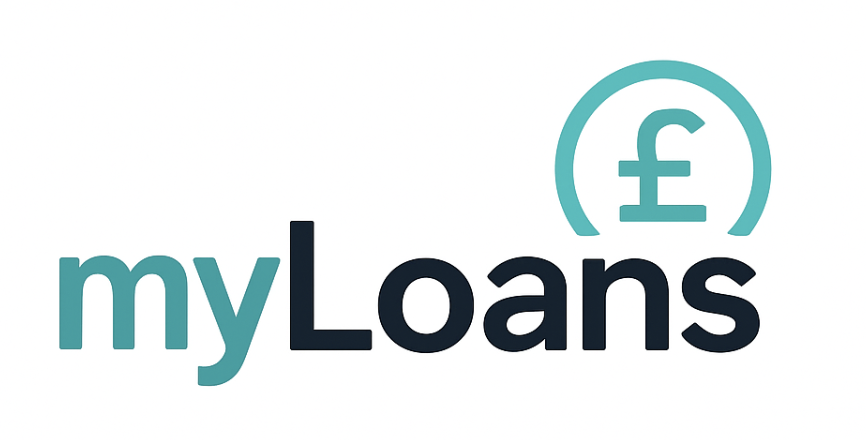Table of Contents
Introduction: When Life Demands Urgent Cash
Unexpected bills can strike at any time — a broken boiler in winter, urgent car repairs, vet bills, or even a gap in wages. For many in the UK, these emergencies create immediate pressure. If savings aren’t enough, an emergency loan may provide a short-term solution.
But with so many lenders advertising “instant cash” or “same-day loans”, it’s vital to understand the difference between legitimate, regulated emergency loans and high-cost, risky products.
This guide explores emergency loans in the UK for 2025 — how they work, your options, the risks, and safer alternatives to keep in mind.
What Are Emergency Loans?
Emergency loans are any type of credit designed to give you fast access to money. They may be:
-
Personal loans (same-day funding available from some lenders)
-
Credit union loans (quicker decisions for members)
-
Overdrafts (instant access but expensive long-term)
-
Payday loans (short-term but extremely high APRs)
How Quickly Can You Get an Emergency Loan?
-
Online lenders: Some offer approval within minutes, funds in hours.
-
High street banks: Typically 1–3 working days.
-
Credit unions: Varies, but often same day if you’re already a member.
-
Payday lenders: Instant approval, same-day payouts — but very high interest.
Common Reasons People Seek Emergency Loans
-
Urgent household repairs (boiler, electrics, appliances)
-
Car breakdowns needed for commuting
-
Unexpected medical, dental, or vet bills
-
Rent shortfalls or urgent housing needs
-
Travel for family emergencies
Emergency Loan Options in the UK
1. Unsecured Personal Loans
-
Fixed repayments, £1,000–£25,000 typical
-
APRs 6%–20% (depending on credit score)
-
Not always instant, but online lenders may offer same-day
2. Credit Union Emergency Loans
-
Smaller amounts (£100–£3,000)
-
APR capped at 42.6% (much cheaper than payday loans)
-
Best for community-based support
3. Overdrafts
-
Instant access if pre-arranged
-
Typically ~39.9% EAR
-
Useful for very short-term borrowing
4. Payday Loans
-
Fastest option, but APRs 500%+
-
Regulated cap = £24 per £100 borrowed, but still expensive
-
Should only ever be last resort
Pros and Cons of Emergency Loans
Pros
-
Fast access to money when needed
-
Flexible options (banks, online lenders, credit unions)
-
May prevent knock-on costs (avoiding missed rent, keeping car running for work)
Cons
-
High interest rates for bad credit
-
Risk of falling into debt cycle if borrowing repeatedly
-
Payday loans remain very expensive despite FCA regulation
-
Not a substitute for long-term financial planning
How to Improve Your Chances of Approval
-
Check eligibility with soft searches to avoid harming your credit.
-
Borrow only what you need — smaller requests more likely approved.
-
Show stable income — lenders want repayment confidence.
-
Consider guarantor support if credit is very poor.
-
Check credit union membership — often overlooked but powerful option.
Safer Alternatives to Emergency Loans
-
Employer salary advance schemes (growing in 2025)
-
0% credit cards for small, manageable amounts
-
Government/local council hardship funds
-
Charities and welfare assistance schemes
-
Family/friend borrowing (if possible, safer than payday loans)
Worked Examples
Example 1 – Car Breakdown
-
£800 repair bill
-
Payday loan at 1,200% APR = ~£1,200+ repayable after 3 months
-
Credit union loan at 12.9% APR over 12 months = ~£71/month, £852 total repayable
👉 Shows why regulated alternatives matter.
Example 2 – Rent Shortfall
-
£500 needed urgently
-
Overdraft at 39.9% EAR for 30 days = ~£16 interest
-
Payday loan at capped rate = £120 cost
-
Personal loan (if approved, 12% APR, £500 over 1 year) = ~£45 interest total
FAQs
Q: Can I get an emergency loan with bad credit?
Yes — but it’s harder and more expensive. Credit unions and guarantor loans may be better than payday lenders.
Q: Are emergency loans safe?
Only if the lender is FCA-regulated. Avoid unlicensed or offshore loan companies.
Q: What’s the fastest emergency loan in the UK?
Payday lenders advertise instant funding, but regulated online personal lenders can also fund within hours.
Q: Can Universal Credit claimants apply?
Yes, some lenders accept benefits as income, though criteria are stricter.
Conclusion: Act Fast, But Borrow Smart
Emergency loans in the UK are designed for urgent situations, but not all products are created equal. While payday lenders may offer instant funding, the long-term costs can be devastating. Safer options like credit unions, online personal loans, or even arranged overdrafts usually work out much cheaper.
The golden rule: borrow only what you need, compare options carefully, and always choose a regulated lender. In a true emergency, borrowing can buy you time and stability — but it should never create a bigger crisis down the line.
Personal Loan Debt Consolidation UK – Is It Right for You?
Juggling multiple credit cards, overdrafts, or loans can be stressful and expensive. A debt consolidation loan allows you to combine everything into a single monthly repayment, often at a lower interest rate. In 2025, UK lenders from high street banks to online...
Top 10 Personal Loan Providers UK 2025 – Rates, Features & Eligibility
The UK personal loan market in 2025 offers more choice than ever, with banks, supermarkets, online lenders, and credit unions all competing for borrowers. The best deal for you depends on your credit score, loan size, and repayment term — but comparing providers side...
Best Debt Consolidation Loans UK 2025 | Top Options
Managing multiple debts can feel overwhelming, especially with credit cards, overdrafts, and personal loans all charging different interest rates. A debt consolidation loan can simplify your finances by rolling everything into one fixed monthly repayment — often at a...
Best Bad Credit Loans UK 2025 – Top Lenders Compared
Having a poor credit score, CCJs, or past defaults doesn’t mean borrowing is out of reach. In 2025, several UK lenders specialise in products designed for people with bad credit — offering smaller loans, flexible repayment terms, and eligibility checks that won’t harm...
Home Repair Loans UK – How to Cover Unexpected Costs in 2025
A leaking roof, broken boiler, or urgent plumbing issue can quickly turn into an expensive problem — often when savings aren’t available. In 2025, home repair loans in the UK provide a way to spread the cost of essential fixes into manageable monthly repayments. This...
Green Energy Loans UK – How to Finance Eco-Friendly Home Improvements in 2025
Eco-friendly upgrades such as solar panels, insulation, heat pumps, and EV chargers can cut energy bills and boost property value — but they require a significant upfront investment. In 2025, green energy loans in the UK provide a way to spread the cost of sustainable...
Moving House Loans UK – How to Cover Relocation Costs in 2025
From deposits and removal vans to solicitor fees and new furniture, moving house in the UK can quickly add up to thousands of pounds. Not everyone has savings set aside to cover these costs upfront. In 2025, moving house loans in the UK provide a way to spread...
Education Loans UK – How to Fund Studies and Professional Courses in 2025
Not all education in the UK is covered by government student finance. Postgraduate degrees, professional qualifications, and private training often require self-funding — with tuition fees and course costs running into thousands of pounds. In 2025, education loans in...
Holiday Loans UK – How to Spread the Cost of Travel in 2025
Holidays can be some of the most rewarding experiences of the year, but they often come with a price tag that’s hard to cover upfront. From flights and hotels to all-inclusive packages and once-in-a-lifetime trips, the costs can add up quickly. In 2025, holiday loans...
Best Personal Loans UK 2025 – Top Lenders Compared
The UK personal loan market in 2025 is more competitive than ever, with high street banks, supermarkets, online lenders, and credit unions all offering products to suit different needs. Choosing the right provider can save you hundreds in interest and ensure...
Medical Loans UK – How to Finance Healthcare Costs in 2025
While the NHS covers most essential treatment, waiting lists, private care, and specialist procedures mean many people face out-of-pocket medical expenses. From dental work and fertility treatment to cosmetic surgery and urgent private healthcare, costs can run into...
Car Loans UK – Personal Loan vs Hire Purchase vs PCP in 2025
Buying a car in 2025 usually means more than just choosing the right vehicle — it also means deciding how to pay for it. In the UK, the three main options are a personal loan, hire purchase (HP), or personal contract purchase (PCP). Each has its own advantages,...
Home Improvement Loans UK – How to Finance Renovations in 2025
Planning a new kitchen, loft conversion, or energy-efficient upgrade can transform your home’s value and comfort — but the upfront costs are often daunting. In 2025, home improvement loans in the UK provide a way to spread renovation expenses into affordable monthly...
Bad Credit Personal Loans UK 2025 | Complete Borrowing Guide
Defaults, CCJs, or missed payments don’t have to shut you out of borrowing. In 2025, UK lenders still offer options for people with less-than-perfect credit — from credit unions and guarantor providers to online specialists. This guide explains how bad credit personal...
How to Use a Personal Loan Calculator to Plan Your Borrowing
A personal loan calculator is one of the easiest ways to understand what a loan will really cost you. By entering the amount you want to borrow, the interest rate, and the repayment term, you can see your monthly repayments and the total cost over time. This simple...

















